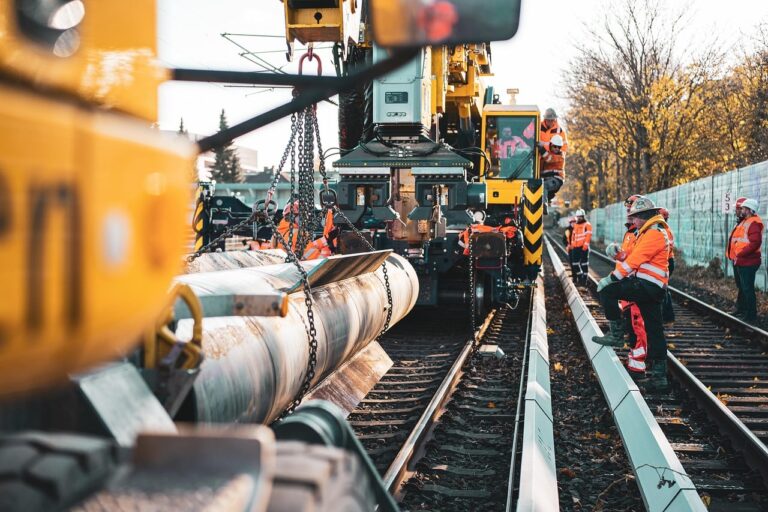Minimising Construction Noise at Night
Factors to consider before authorising night works Many construction companies are choosing to undertake a far higher proportion of work at night, both to speed up construction and to make things safer and more comfortable for both the public and their workers. Working at night has its advantages, such as: Cooler temperatures Well-lit work areas,…
Factors to consider before authorising night works
Many construction companies are choosing to undertake a far higher proportion of work at night, both to speed up construction and to make things safer and more comfortable for both the public and their workers.
Working at night has its advantages, such as:
- Cooler temperatures
- Well-lit work areas, and
- Less traffic, making it easier for trucks and heavy machinery to access the site.
Yet there are several downsides to night-time construction, the biggest of which is undoubtedly noise.
Everything is quieter at night, which means construction noise appears to be amplified even when it’s carried out behind barriers and hoardings. Each sound seems to resonate: grader buckets banging on hard ground, generators thrumming, reversing beepers piercing the night air – it all turns into noise.
This increase in night-time noise commonly leads residents to complain.
Here’s what you need to know about noise, before authorising night works.
How to organise construction work at night
Most city councils do not allow any audible noise between 6.30 pm and 6.30 am on weekdays and Saturday, or at any time on Sundays and public holidays. The exception is if you have been granted a pre-arranged development approval.
If you carry out night works in accordance with this pre-approval, you are exempt from nuisance offences for noise. However, it is still your responsibility to take “all reasonable and practical measures to minimise and manage that nuisance”.
Another exception to the night-time noise ban is where the ongoing site works may cause a major traffic hazard, or in situations that involve continuous work, such as a concrete pour.
Note too that each state has different guidelines. For example, sometimes the restrictions apply between 7 pm and 6 am – so you should check with your local council before proceeding.
Another consideration before starting construction site night-works is the importance of communicating with neighbouring residents and business owners. Distributing leaflets explaining the hours and duration of operation may help to prevent complaints.
Establish which neighbours will be most impacted by the noise and inform them of:
- What is taking place, and the machinery/ processes involved (e.g. jack hammering, concrete cutting & pouring, etc)
- Why the construction needs to be carried out at night
- The duration of the night works, and
- When the noisiest periods will be (preferably as early as practicable in the shift).
To work out the projected impact on neighbours, the project team should:
- Benchmark the existing noise levels outside homes before construction
- Predict what the noise levels will be like during construction
- Consider ways to minimise noise including:
- Changing the work methodology
- Controlling the noise emanating from equipment, and if possible,
- Modifying the time of work activity.
7 ways to reduce construction site noise at night
According to Brisbane City Council guidelines, to help minimise building noise at night you can:
- Limit work hours.
- Select quieter equipment or use alternatives.
- Carry out work as far away as possible from neighbours, and away from sensitive areas such as bedroom windows.
- Service your equipment regularly, since lack of maintenance can cause higher noise levels.
- Erect a solid fence or barrier.
- Modify equipment – discuss this option with the manufacturer or installer.
- Install an acoustic enclosure for fixed equipment such as compressors or vacuum equipment.
This final step is where working with an experienced noise control team such as Flexshield will add benefit.
Noise control options for night construction
As Australia’s industrial noise control specialists, Flexshield have a wide range of proven soundproofing solutions for construction sites, including:
- Acoustic mobile tents (also known as sonic tents),
- Sonic quilts,
- Sonic noise barriers, and
- Sonic curtains
Combining exceptional acoustic attenuation and absorption materials and available in 3 different surface mass densities, the sonic curtain is deployed where serious noise control is required.
Available with convenient hire or buy options, they are quick and easy to erect and dismantle and should be part of your night works ‘armoury’.
“We use these curtains mostly during night construction works to minimise noise impacts to residents. Feedback from the residents is that the screens help and they appreciate us trying to minimise noise impacts.”
Jenny Butler, Environmental Manager, Kingsford Smith Drive Upgrade Project, Lendlease.
For more information on construction site noise, contact our expert Flexshield team on 1300 799 969.
Related Stories
-

Flexshield’s big month in industrial noise control – on the road from QLD to WA!
Taking action for hearing health and sustainable water management It’s been a busy month for the Flexshield team, and we’ve covered vast distances from Queensland to New South Wales, Victoria, and Western Australia. It’s been… -

The science behind tailored industrial noise control solutions for your project
7 key considerations for addressing noise pollution for your project When you’re managing noise on a job site, it’s important to understand the science behind industrial noise control and how to apply it effectively. Whether… -

World Hearing Day 2025: protecting workers’ hearing with Flexshield
Why prioritising hearing protection is essential for your workforce Each year on March 3rd, the World Health Organisation (WHO) marks World Hearing Day, raising awareness about hearing loss and promoting actions to protect auditory health….